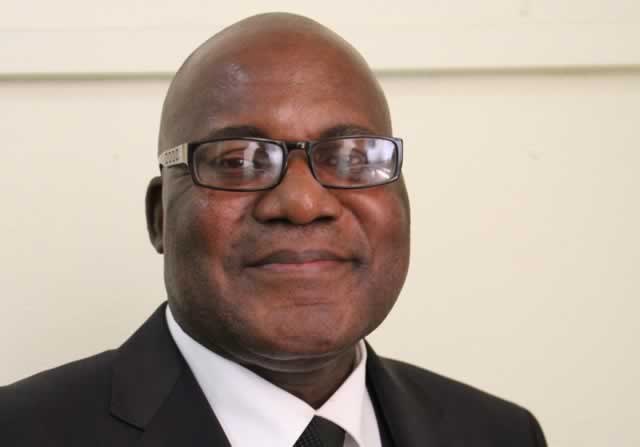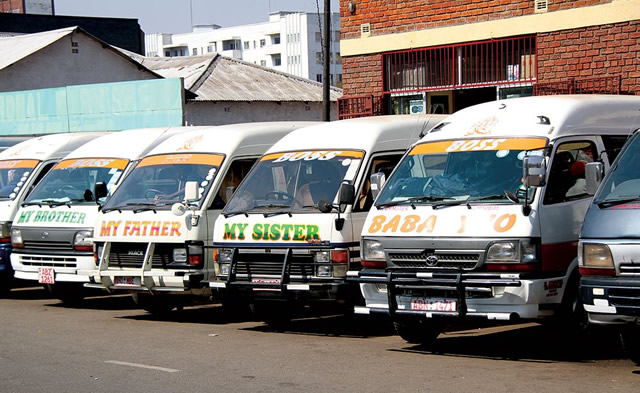Perspective: Beating drums of criticism

By Stephen Mpofu
IT is not very often that a Minister from a ruling party – and one carrying a senior rank at that – makes time to visit privately owned newspapers, some of which appear to have a penchant for virulent attacks on his Government, and invites scribes there to embark on a believers journey with those in power in building the motherland as one patriotic people.
But Cde Christopher Mushowe, the Minister of Information, Media and Broadcasting Services, took that unusual step earlier this week in visits to NewsDay, the Daily News and The Financial Gazette. The Minister did not reach out across the aisle on bended knees to silence those beating the drums of unfair criticism of the Zanu-PF government.
While the objective of the visits might have remained a silent one, Cde Mushowe’s rare gesture should be seen as a statement of assurance to the sections of the media in point that they have a big role to play by disseminating not polarised but objective and constructive information that is beneficial to Zimbabweans as one people charged with a monumental task of furthering the revolution that secured our beloved country from a racist and oppressive white regime.
Governments in some African states and others abroad have locked up journalists behind bars for publishing “lies” and/or for baseless criticism of the state, often at the behest of opposition political parties eager to discredit a sitting government in order to lower its esteem in the eyes of the general populace as the opposition bid to sneak into power themselves.
That here at home a Minister tells the so-called independent press his government has no wish to see journalists arrested but that those who call their vocation a “noble profession” should demonstrate that nobility through truthfulness and constructive journalism, points to a desire for a rapport between the state and media practitioners in developing the country together as a team with journalists exposing and criticizing corruption and other social ills where these rear their ugly heads.
That is the transformative role that media are obligated to play in society, and any writer who went through a reputable school of journalism should be well acquainted with that imperative.
Similarly, any journalist proud of his or her craft should refuse to be turned into a hobby horse by fly-by-night politicians, be they in the opposition or government, for self-gratification or political aggrandisement at the expense of the general population who need truthful information to make informed decisions vis-à-vis their Government and the general state of affairs in the country.
Self-distanciation from cheap dangerous propaganda or some such evil machinations by even a party that one supports is a golden rule that should insulate journalists against being carried by whirlwinds as it were and in the process lose sight of the transformative and constructive role they are supposed to play as patriots.
For instance, if certain sections of Zimbabwean media allow themselves to be turned by enemy foreign governments, or by disgruntled local opposition parties, into political arsonists and go ahead and torch the country, not even they themselves or their relatives will escape the engulfment by the resultant blaze, as not even their offices are safe havens to escape the consuming fire.
Those with eyes to read the writing on this paper-wall should take heed.
Right now an exciting new milestone looms large on Zimbabwe’s economic horizon with many potential foreign investors lining up to catch flights to this country and immortalise on paper investment deals with various companies and with the state for work to begin in many lucrative areas of the economy.
Does any right thinking Zimbabwean want to have such wonderful investment opportunities quashed by negative publicity by local media acting on behalf of opponents of the Zanu-PF government?
This pen certainly hopes every journalist knows how an objective portrayal of the country’s political and economic picture abroad does help to catalyse foreign investors that this country needs so much to help drive ZimAsset.
Perhaps Cde Mushowe might wish also to have an audience with Zimbabwean correspondents of media in the West, in particular. Some of these Zimbabwean citizens based in Harare or roving around the country have shamelessly purveyed one-swallow journalism to the detriment of the image especially of President Robert Mugabe and that of his government.
Take for example the President’s departure on his deserved annual vacation in the far East. A report by the Voice Of America (VOA) radio from its Zimbabwean correspondent claimed that most Zimbabweans were against the President’s departure for his holiday, leaving behind civil servants complaining about a delay in the payments of their salaries.
But only two persons interviewed, one of them a vendor, turned out to be the so-called “most Zimbabweans” that the reporter claimed to be opposed to Cde Mugabe’s vacation after such an arduous year in which he not only steered the ship of the Zimbabwean state but also chaired Sadc and the African Union with plausible stewardship.
Then there was this other eloquent lie by the VOA from its Zimbabwean writer who claimed during the celebrations marking Unity Day between PF-Zapu and Zanu-PF that the late former Vice President of Zimbabwe, Cde Joshua Nkomo, was brought by force to sign the Unity Accord on December 22, 1987. But the truth that any Zimbabwean should know is that the Unity Accord was negotiated between the two political parties involved.
The sanctions imposed by the US on Zimbabwe — along with the European Union — have also been portrayed by Zimbabwean writers for American audiences completely out of reality. At first, VOA correspondents — apparently in a bid to shine Washington’s star, and perhaps at the American Administration’s instruction, have in the past said the economic embargo was punishment for Zimbabwe’s rigging of elections — clearly a blatant lie as anyone should know.
Then just his week alleged human rights violations as well as land reform under which the government was said to have cruelly seized land belonging to 3,000 white farmers for reallocation to black Zimbabweans, who needed the asset the most, were added to the list to try to justify the illegal economic embargo. But one could have expected that the author of the story, being a Zimbabwean citizen, ought to have known that after Britain promised during the Lancaster talks to pay compensation to whites whose land the Government needed for redistribution to indigenous Zimbabweans the new British government reneged on the promise made and our government had no option but to repossess the land in question.
And one would have expected that America would have thrown its weight behind its sister country and erstwhile coloniser by chipping in with the compensation money.
But instead sanctions were imposed to try to effect regime change and reverse land reform. The writer of the story, like other Zimbabweans writing for Western media, obviously kowtowed, perhaps under pressure, to portray the illegal sanctions as justified punishment against blacks who must have been expected to continue to irk out meager existence like chickens from patches of infertile land while white settlers fattened their bellies on land seized from indigenous people in the first place.
The mind boggles.
Now compare the Zimbabwean government action on land with what immigrant Americans did against indigenous people there, the so-called Red Indians.
The whites drove the native Americans all the way from the east to the west and farther away, to occupy grasslands and graze their livestock.
When the natives complained that they were starving because of delays to the supply of food to areas to which they had been moved, one of the white officials sent a report to the effect that the Indians should “eat the grass” there.
Apparently enraged by that racist remark the Indians launched an attack on the white settler farmers, killing them and the official who had offended them was found dead with grass stuffed in his mouth.
But here in Zimbabwe no white farmer whose land was repossessed has ever been found dead and with grass packed into his mouth.
The bottom line to the discourse above is simple and straight forward. Zimbabwean journalists, who levitate, like a balloon tied to a stick and in the hand of a child, are professional monstrosities. Arresting and incarcerating them in an effort to reform them only helps to embitter them into worse monsters.
But a sound ethical code buttressed by an unmitigated love of the motherland as well as by unwavering patriotism will no doubt make the errant journalists into the mould of professionals that any nation feels proud to celebrate.
It is this pen’s humble belief that it is not yet too late to reverse the bromide of a hit-and-run brand of journalism that has come to portray some otherwise indefatigable scribes as paper tigers in the minds of some of our people, particularly those in Government.
As a people in a hurry to develop, Zimbabweans certainly espouse and crave a liberation and empowerment journalism with stories crafted from facts clothed not in plastics but in immutable truth.









Comments